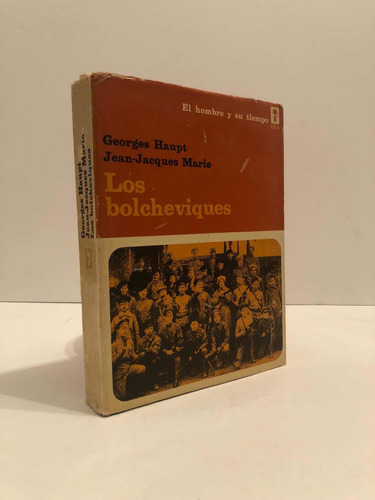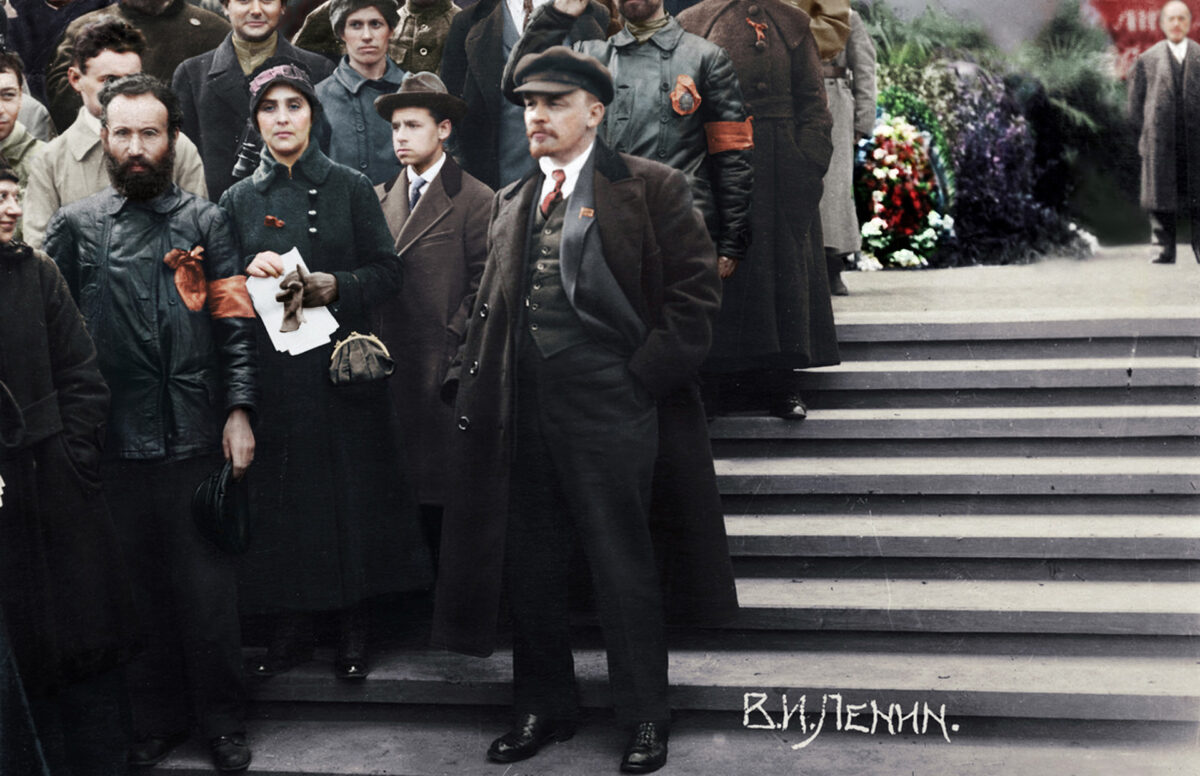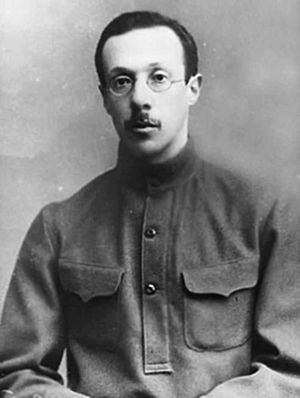Rosa Luxemburg, Work in Progress: Interview with Peter Hudis

How did the idea of publishing the complete works of Rosa Luxemburg start?
The idea of publishing a Complete Works of Luxemburg in English first came up at a conference in South Africa in 2007, sponsored by the International Information and Research Group. I gave a keynote address at the conference on “Political Power,” which focused on Luxemburg, and at its conclusion a number of participants—from South Africa, Brazil, India, Germany, France, and elsewhere—discussed the fact that more of Luxemburg’s work should be made available in English. I had co-edited some years earlier the Rosa Luxemburg Reader (with Kevin B. Anderson) and had thought that there was a need for more of her work to get into English; indeed, I began thinking along those lines in the late 1970s, when I did research for Raya Dunayevskaya as she was worked on her book Rosa Luxemburg, Women’s Liberation, and Marx’s Philosophy of Revolution. But it was not until the conference in South Africa that this was directly posed to me as part in a discussion of how to get her work more widely disseminated. Arndt Hopfman of the Rosa Luxemburg Foundation was at the discussion and asked if I would be willing to put the project together. At that point, I began to explore possibilities. It took several more years before the project got off the ground.
At the time, I thought the task would be relatively straightforward—simply translate and edit the parts of the German-language Gesammelte Werke and Gesammelte Briefe that were not yet in English (even that, we knew, would take a lot of work and quite a number of years). Getting funding for translating so much material would of course pose a hurdle, one that remains for us today. However, little did I know that there was a huge
of amount of material that for one reason or another never made it into the Gesammelte Werke—newly discovered manuscripts, essays and articles published anonymously that have only recently been identified as by Luxemburg, and a vast number of writings originally composed in Polish, the vast bulk of which had never been republished anywhere, including in German. This “new” material totals over 5,000 pages. So, the project has turned out to be far more complex and extensive than I initially realized. Nevertheless, I am working on this with a group of associates, which includes Paul Le Blanc, Helen Scott, Sandra Rein, Henry Holland, Ankica Čakardić, Rory Castle, Axel Fair- Schulz, Joshua Wavrant, and Loren Balhorn who have made it possible to come as far as we have.
Are you following the German complete works or not? Have you found some material never previously published? When do you plan to finish the publication?
Yes, much of the material we are working on is from the Gesammelte Werke, which includes two supplementary volumes added to it since 2006 containing a large amount of her heretofore unknown or inaccessible writings, totalling close to 1,000 pages for each volume. Almost none of this material has been in English. It is largely thanks to the tireless work of Annelies Laschitza that these writings have seen the light of day: she literally spent decades of her life tracking down every document and writing of hers that could be found. Her work on this was only cut off by her death last year. Our work in producing the English-language Complete Works would be impossible without her, as well as the work of other scholars such as Georg Adler, Eckhard Müller, Narihito Ito, Ottokar Luban, Holger Politt, Evelin Wittich, and Jörn Schütrumpf.
Most of the material that we have published so far in Volumes One, Two and Three of the Complete Works—as well as Volumes Four and Five, which are currently being edited for publication—has never been published in English. As much as 80% of her overall body of work remains unavailable in English. The previously unpublished materials that we have so far made available include her writings on non-Western societies, anthropology, and economic history developed as part of work at the School of the German Social-Democratic Party from 1907-1914; dozens of articles, essays, and speeches dealing with the 1905 Russian Revolution, most of which were originally published anonymously or in Polish-language publications of the time that were largely unavailable until now; and theoretical discussions on such issues as the history of social revolution, the relevance of Marxism, and the “dictatorship of the proletariat” which have only now been translated into English (these are especially critical in Volumes Four and Five of the Complete Works). But even this is but the tip of iceberg: for instance, we plan to devote three to four volumes, of 500 to 600 pages each, to her writings on
nationalism—only 200 hundred pages of which ever made it into English. And that is still not counting many of her debates on revolutionary strategy and organization, writings on colonial policy and imperialism, and literature that will be included in future volumes.
As to when we plan to finish publication, it is difficult to work on more than one volume a year; we’re talking of at least 17 volumes in total, so you can do the math!
I know that the correspondence is being published in German. What are your plans with regard to this?
Actually, her Gesammelte Briefe was published many years ago in German (by Annelies Laschitza) in six volumes. We intend to translate all of it, although it will take us a number of years to get to it; her complete correspondence will be the last rubric we work on. The letters are of such importance that we decided not to wait until them to make some of them available. Therefore, Verso Books published as a companion volume to the series in 2013, the 600-page Letters of Rosa Luxemburg, co-edited by Adler, Laschitza, and myself. It is the most comprehensive collection of her letters ever made available in English.
100 years after the death of Rosa, what do you think is the heritage of her works and
activity?
There are many dimensions of her work that speak to our situation today. Which is not to say there is a one-to-one connection: as Luxemburg never ceased to emphasize, Marxism is not an abstract metaphysical system that one follows as gospel; nor is it a set of conclusions that one holds to (or rejects) irrespective of the need to constantly rethink them. Marxism is rather an approach to the understanding and transformation of the world that each generation in each geographic area must work out for themselves based on the specific material and social realities facing them. We therefore have to approach her work with this in mind: we live in a very different era from hers, and it is not possible to apply or adopt her formulations or conclusions without taking careful
account of what distinguishes our time from hers.
I will mention several aspects that distinguish our time from hers, which helps to illuminate the importance of her contribution—even if in ways she herself did not anticipate.
First, her era was defined by a single subject of revolution—the proletariat. Of course, other social forces were on the scene at the time, such as women, peasants, students, colonized peoples, national minorities, etc. But, for Luxemburg, the development of a class-conscious proletariat was her primary focus and concern. In one sense, her concentration on this dimension is more relevant than ever, since a far greater percentage of the world’s populace (and a much greater absolute number) are today wage laborers—over three and half billion! Like other Marxists, she held that capitalism cannot manage to reproduce itself unless it extends the wage relation into ever-more sections of the populace, since capital itself is the objectification or crystallization of
labour power that can be expressrf in a monetary equivalent. Yet, unlike many other Marxists of her time, she held that, while the objective, material conditions compel the existence of a class of wage-earners whose long-range interest conflicts with capital, it is by no means automatic that that class will obtain the consciousness requisite for understanding its own situation and will transform society accordingly. The working class, she insisted again and again, needs enlightenment. In part, that is obtained from the experience of its own struggles; but it is also obtained from the social awareness provided by Marxist theory that is communicated to the masses through revolutionary organizations. She was not the idealist exponent of spontaneity that many suppose; she
deeply appreciated spontaneous struggles but she had no illusion that they were ends in themselves. Nor did she view revolutionary parties as ends in themselves (something that many leftists haven’t learned to this day). The key for her is for the oppressed to gain the consciousness requisite to completely transform society. In this sense, she speaks very much to our present predicament, when the need to develop such consciousness is urgent.
Nevertheless, it is clear that our era is not defined by a single subject of revolution. Women’s movements, anti-racist movements, LGBTQ struggles, peasant movements, youth movements are no less central than the class struggle. Her generation of Marxists tended to have little say about such issues. She had more to say about them than many presume, especially when it comes to some very important writings of hers on women’s liberation and anti-colonialism. It is therefore no accident that a growing number of de- colonial and feminist thinkers and activists are re-examining her writings on the relation between capitalism and imperialism, on the one hand, and patriarchy, on the other. Our era provides a lens from which to grasp dimensions of Luxemburg’s work that were largely neglected until recently. At the same time, however, her work suffers from the tendency to reduce all forms of revolutionary consciousness to class consciousness—most vividly shown by her stubborn refusal to view national consciousness as potentially revolutionary. This aspect of her legacy, I argue, speaks much less to our present situation, defined as it is by social movements and problems that are not reducible to class.
Second, she lived in era prior to the emergence of Stalinism—the transformation of a revolution from one aiming to liberate the working class into one that enslaves it to an unprecedented degree, as occurred in the USSR, Mao’s China, and elsewhere. To be sure, she witnessed many a reformist socialist come to power and turn their backs on the working class and the effort to promote a transition to socialism; much of her work consists of extended polemics against such tendencies. But while her critique of reformism remains highly significant, even more important is her critique of revolutionaries who, upon assuming power, move in an authoritarian direction. The fullest expression of this is found in her critique of Lenin and Trotsky’s suppression of workers self organization and democracy following the Bolshevik seizure of power in On the Russian Revolution (1918). She supported their seizure of power in 1917 as essential in order to advance the revolution in the face of the equivocations and betrayals of the reformist Provisional Government led by Kerensky (which was supported by most of the Mensheviks). However, she perceptively saw, much sooner than almost anyone else, that Lenin and Trotsky’s shutting down of independent workers’ organizations and political parties and stifling freedom of speech, expression, and association would prevent the revolution from moving in a truly socialist direction. Simply nationalizing property under the aegis of a single party-state that operates in the name of the working class does not provide the masses with the political, economic, and intellectual capacities needed for breaking down and ultimately eliminating the domination of capital. Democracy, she insisted, is not just a tool that is used to gather enough support to make a revolution; socialism depends upon the existence of genuine democracy—a democracy that does not shut down political liberties but rather extends them to economic relations. But that simply cannot be achieved by a single party-state that monopolizes power—no matter what ideology it professes or calls itself. She understood, as did Marx, that the “dictatorship of the proletariat” is not a dictatorship of a minority party that dictates to the oppressed; it is rather a democratic dictatorship of the oppressed that uses its free social powers to uproot the old ruling classes.
Luxemburg fully understood that in 1918 the Bolsheviks were facing terrible travails and that it was necessary for them to take certain measures against the counter-revolution that even they felt uncomfortable with. Her gravest criticism of the Bolsheviks, however, is that they increasingly made a virtue out of necessity, by elevating their approach as the model to be followed elsewhere. And, tragically, this is exactly what dominated the Left for the next century, as seen in endless efforts to structure leftist party programmes and perspectives on what the Bolsheviks did after 1917—even though the realities in much of the world (and especially in the bourgeois democracies of the West) bore not the slightest resemblance to the realities of Russia in 1917. “Marxism” largely got reduced, not just by Stalinists but its Trotskyist opponents, as a metaphysical system
that was followed as gospel; it became a set of conclusions upheld irrespective of the need to rethink them anew in face of fundamentally changed realities.
Luxemburg’s 1918 On the Russian Revolution is, in many respects, a prophetic warning against the path taken by authoritarian and statist socialists ever since. However, she neither lived to see Stalinism, nor did she anticipate it. Despite sharp criticisms of Lenin and Trotsky, she viewed them as comrades, not enemies; as individuals pursuing a wrong path but who could still be won over to a different course. But there is no way she
could view Stalin (at least after 1926, and surely not by the 1930s) in such terms, nor Mao, Pol Pot, or Ceausescu, who were far, far worse than either Lenin or Trotsky (or Bernstein and Kautsky for that matter). Luxemburg’s deep, sensitive, and uncompromising devotion to human freedom, spontaneous self-development, and individual liberty made her anathema to the established “Marxism” that dominated the Left in the twentieth century, but it is precisely these attributes that has her legacy resonate today with a new generation of activists and radical theorists who seek to let the dead bury their dead and instead develop a new humanism worthy of the idea of socialism.
https://www.versobooks.com/blogs/5013-rosa-luxemburg-work-in-progress-interview-with-peter-hudis?fbclid=IwAR1UfsJdoyFNfE4tXG7Z9wneQ5jcS-tBQCiM0VPM_81XiED97K3bhdjHg3U
Originally published in Il Manifesto.
 English
English Pрусский
Pрусский Français
Français Español
Español








